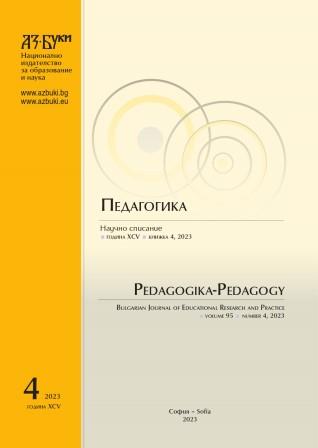Students' Attitude to Distance Learning as a Component of their Mobility
Students' Attitude to Distance Learning as a Component of their Mobility
Author(s): Tetiana DokuchynaSubject(s): Social Sciences, Education, School education
Published by: Национално издателство за образование и наука „Аз-буки“
Keywords: mobility; distance learning; students of specialty 016 Special education
Summary/Abstract: The presented article examines the problem of students' readiness to distance learning from the point of view of developing their mobility, as a priority characteristic of a modern specialist. The relevance of the problem is due to the processes of informatization of education as a modern trend in the development of education and the rapid introduction of distance learning in connection with the COVID-19 pandemic. In this context, mobility is a significant quality of a specialist's personality, which is manifested in readiness for various spatial movements and adaptation to different situations. The article presents the results of an empirical study of students of specialty 016 Special education, based on the results of an online survey. The results of the study showed the predominance of positive attitude of students to distance learning, the main advantages of which are convenience, time savings and the ability to get an education at home. The main disadvantage, in addition to poor-quality internet connection, is the lack of live communication, which is also the main need of students. Despite the positive assessment of distance learning, students do not consider it as high-quality and do not want to teach children with special educational needs remotely. In order to form students' readiness towards distance learning and remote work, it is advisable to define the formation of mobility as the quality of a specialist in the process of professional training, since distance or blended learning is a modern form of education and has a significant potential for further development.
Journal: Педагогика
- Issue Year: 95/2023
- Issue No: 4
- Page Range: 439-448
- Page Count: 9
- Language: English
- Content File-PDF

